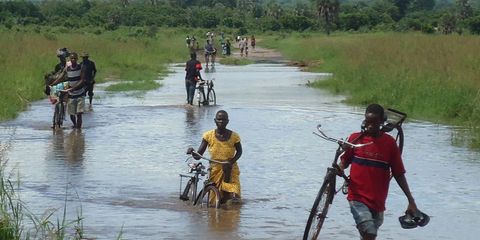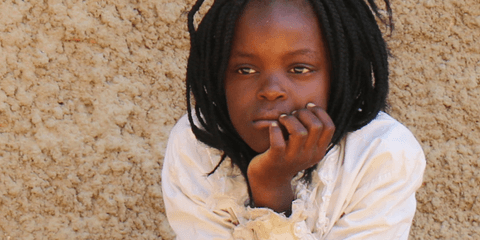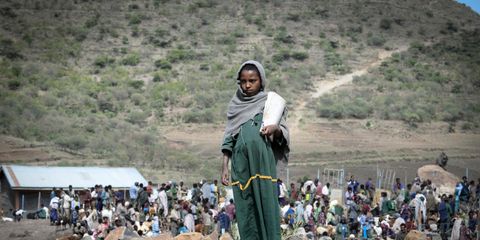Statement on the COP27 Loss and Damage Fund
Fund must now be urgently operationalised and filled with new and additional finance.
21 November 2022Plan International welcomes the COP27 decision on establishing a loss and damage fund which can advance climate justice and support developing countries.
This is a historic moment, and the result of significant years of effort from developing countries and the unity of these countries, civil society and young people in continuing to push for gender, intergenerational and climate justice.
This fund must now be urgently operationalised and filled with new and additional finance.
Children as agents of change
The explicit recognition of children as agents of change, included in the design and implementation of climate policies and action, is an important step forward in recognising children’s right to participate in decisions that most affect their future and wellbeing. Parties also agreed, through a new Action for Climate Empowerment Action Plan, to enhance children’s climate education and empowerment.
COP27 is also the first environmental negotiation process to include an explicit reference to a human’s right to a clean, healthy, sustainable environment, based on the landmark UNGA resolution earlier this year, supporting efforts to mainstream rights in climate and environmental processes.
Children’s futures remain at risk
However, children’s futures remain at risk from the continued burning of fossil fuels, and the window of action to stay below 1.5 degrees is closing. The lack of ambition on mitigation and rapid and equitable phase-out of fossil fuels will continue to negatively impact children’s lives now and into the future, and demands more urgent action.
Further, despite clear research highlighting the significant and disproportionate impact of the climate crisis on girls and young women, and their contributions to addressing the crisis, gender was once again deprioritised and politicised during COP27. Girls’ and young women’s rights must be protected, and their voices must be heard in climate decision-making spaces.


